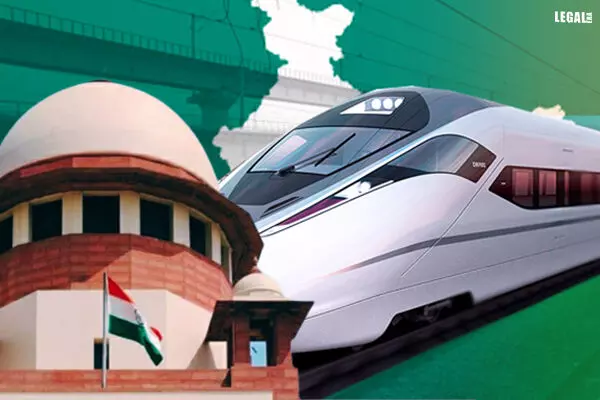- Home
- News
- Articles+
- Aerospace
- Artificial Intelligence
- Agriculture
- Alternate Dispute Resolution
- Arbitration & Mediation
- Banking and Finance
- Bankruptcy
- Book Review
- Bribery & Corruption
- Commercial Litigation
- Competition Law
- Conference Reports
- Consumer Products
- Contract
- Corporate Governance
- Corporate Law
- Covid-19
- Cryptocurrency
- Cybersecurity
- Data Protection
- Defence
- Digital Economy
- E-commerce
- Employment Law
- Energy and Natural Resources
- Entertainment and Sports Law
- Environmental Law
- Environmental, Social, and Governance
- Foreign Direct Investment
- Food and Beverage
- Gaming
- Health Care
- IBC Diaries
- In Focus
- Inclusion & Diversity
- Insurance Law
- Intellectual Property
- International Law
- IP & Tech Era
- Know the Law
- Labour Laws
- Law & Policy and Regulation
- Litigation
- Litigation Funding
- Manufacturing
- Mergers & Acquisitions
- NFTs
- Privacy
- Private Equity
- Project Finance
- Real Estate
- Risk and Compliance
- Student Corner
- Take On Board
- Tax
- Technology Media and Telecom
- Tributes
- Viewpoint
- Zoom In
- Law Firms
- In-House
- Rankings
- E-Magazine
- Legal Era TV
- Events
- Middle East
- Africa
- News
- Articles
- Aerospace
- Artificial Intelligence
- Agriculture
- Alternate Dispute Resolution
- Arbitration & Mediation
- Banking and Finance
- Bankruptcy
- Book Review
- Bribery & Corruption
- Commercial Litigation
- Competition Law
- Conference Reports
- Consumer Products
- Contract
- Corporate Governance
- Corporate Law
- Covid-19
- Cryptocurrency
- Cybersecurity
- Data Protection
- Defence
- Digital Economy
- E-commerce
- Employment Law
- Energy and Natural Resources
- Entertainment and Sports Law
- Environmental Law
- Environmental, Social, and Governance
- Foreign Direct Investment
- Food and Beverage
- Gaming
- Health Care
- IBC Diaries
- In Focus
- Inclusion & Diversity
- Insurance Law
- Intellectual Property
- International Law
- IP & Tech Era
- Know the Law
- Labour Laws
- Law & Policy and Regulation
- Litigation
- Litigation Funding
- Manufacturing
- Mergers & Acquisitions
- NFTs
- Privacy
- Private Equity
- Project Finance
- Real Estate
- Risk and Compliance
- Student Corner
- Take On Board
- Tax
- Technology Media and Telecom
- Tributes
- Viewpoint
- Zoom In
- Law Firms
- In-House
- Rankings
- E-Magazine
- Legal Era TV
- Events
- Middle East
- Africa
Supreme Court rejects the Delhi High Court order

Supreme Court rejects the Delhi High Court order
The judgment has been given against reviewing a disqualified bid
The Supreme Court recently quashed and set aside the judgment of the Delhi High Court. The high court had directed the National High-Speed Rail Corporation Limited (NHSRCL) to reconsider a disqualified bid submitted by a Gujarat-based company, Montecarlo Ltd. It was related to the implementation of the Mumbai-Ahmedabad High-Speed Rail project, popularly known as the Bullet Train Project.
The apex court held that the high court should not have interfered with the tender process floated by NHSRCL unless there were specific allegations of mala fide and/or favoritism.
In October 2020, a tender was floated by NHSRCL for the design and construction of civil and building works for the two depots in Mumbai and Ahmedabad. The Japan International Cooperation Agency (JICA) had granted Rs.1 lakh crores for the Bullet Train Project and JICA appointed the Japan International Consultants Consortium (JICC) as the technical body for evaluating the bids.
But on evaluation, the technical body rejected the bid received from Montecarlo. Subsequently, Montecarlo challenged the decision in the high court stating that the bid was rejected without legitimate reasons despite it being the lowest bid. In August 2021, the high court had passed an order directing NHSRCL to reconsider the bid.
The Supreme Court bench, led by Justice MR Shah, stated that the terms and conditions of the tender documents were stipulated as per JICA's international guidelines. According to the terms and conditions, it was for the JICC/JICA to decide whether or not a bid received was non-responsive and/or non-compliant with the technical requirements of the bidding document.
Significantly, while setting aside the high court judgment, the top court asked the high courts to be cautious while exercising writ jurisdictions challenging the tender processes midway with respect to mega projects. It applied particularly when funded by foreign countries.
The court said that the delay caused in the execution of the project because of the court's intervention could have a cascading effect on the project cost. It would lead to increased unbudgeted expenditure and might also end up in the withdrawal or cancellation of the project by that country.
P&A Law Offices represented the petitioner, NHSRCL, with Solicitor General Tushar Mehta arguing the case and Kunal Chatterjee serving as advocate-on-record. The case was led by Amit Mishra (partner) along with Gaurav Mahajan (partner), Sanjeet Ranjan (senior associate), and Yash Kumar (associate).




